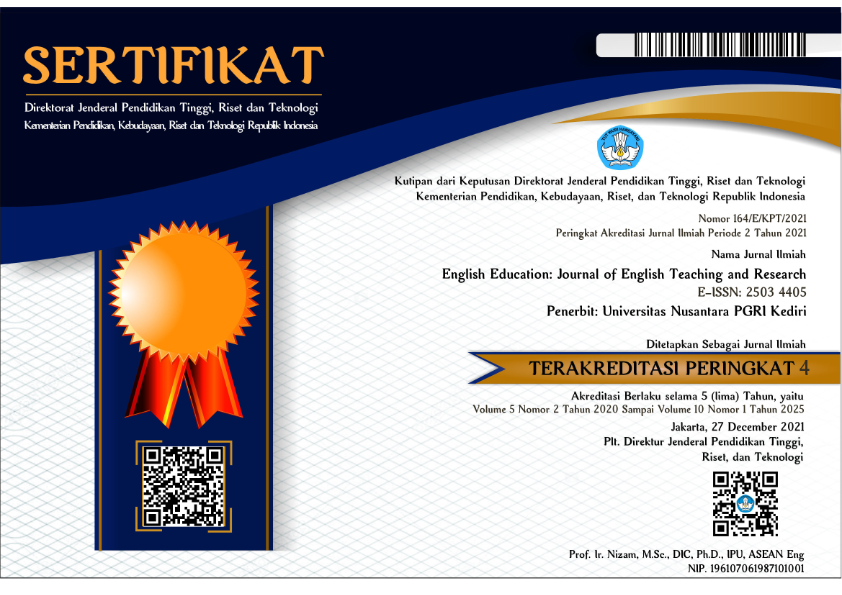Learning - Oriented Assessment in Speaking Class at University Level
DOI:
https://doi.org/10.29407/jetar.v1i1.282Abstract
This paper proposes a model of learning-oriented assessment to inform assessment theory and practice in speaking class. It focuses on two interrelated processes: the students’ assessment tasks and student engagement with feedback. The research method involves classroom observations of in English speaking class in university level and semi-structured interviews with the lecturer and some sample of the students’ feedback. Findings highlight assessment tasks promoting thinking and practicing in the speaking activities and direct feedback to promote timely dialogues with students. The coherence of the model is discussed and some areas for further exploration are suggested. Based on the data analysis, the model shows significantly positive outcome. In the student side, it provides clearly path for them to reach the standard goal since they always get negative evidence from the teacher in each time they are out of the track. In the teacher side, it also provides positive effect. As they give negative evidence or correct the student’s mistake, they auomatically need to monitor the student’s development on every stages. It gives a crystal clear sight of student’s improvement. Finally it supports significantly on the assessment reliability of their speaking skill.
Downloads
Downloads
Published
Issue
Section
License
Authors who publish with this journal agree to the following terms:
- Copyright on any article is retained by the author(s).
- The author grants the journal, the right of first publication with the work simultaneously licensed under a Creative Commons Attribution License that allows others to share the work with an acknowledgment of the work’s authorship and initial publication in this journal.
- Authors are able to enter into separate, additional contractual arrangements for the non-exclusive distribution of the journal’s published version of the work (e.g., post it to an institutional repository or publish it in a book), with an acknowledgment of its initial publication in this journal.
- Authors are permitted and encouraged to post their work online (e.g., in institutional repositories or on their website) prior to and during the submission process, as it can lead to productive exchanges, as well as earlier and greater citation of published work.
- The article and any associated published material is distributed under the Creative Commons Attribution-ShareAlike 4.0 International License








 Article template
Article template



